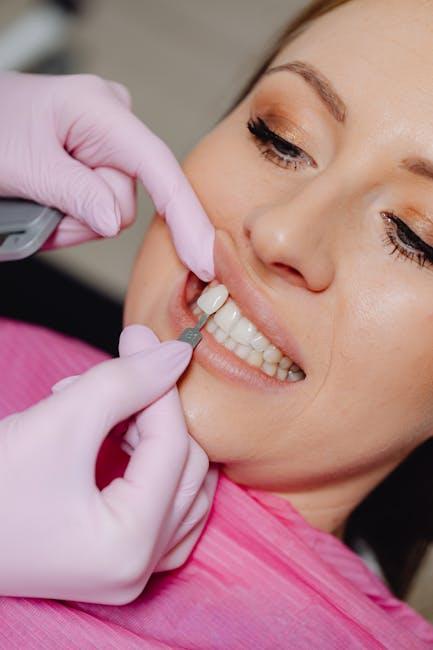
What Dental Experts Say About How You’re Brushing Your Teeth – NBC News
Brushing your teeth every day is a cornerstone of good oral hygiene, but are you doing it the right way? Recent coverage on NBC News sheds light on common toothbrushing mistakes and expert recommendations to help you improve your dental routine. Understanding expert insights can not only protect your pearly whites but also enhance your overall health. In this article, we dive into what dental specialists emphasize about how you’re brushing your teeth, why brushing techniques matter, and practical tips for a brighter, healthier smile.
Why Proper Tooth Brushing Is Crucial According to Dental Experts
Dental experts consistently stress that the way you brush your teeth affects your oral health more than you might realize. Brushing poorly can lead to:
- Gum disease, such as gingivitis or periodontitis
- Tooth decay and cavities
- Enamel erosion leading to tooth sensitivity
- Bad breath caused by bacteria buildup
Brushing correctly helps remove plaque—a sticky, harmful film of bacteria—which, if left untreated, hardens into tartar requiring professional cleaning.
Common Tooth Brushing Mistakes Highlighted by NBC News and Dental Experts
NBC News consulted dental professionals who identified several frequent toothbrushing errors that undermine oral health:
- Brushing too hard: Many people think vigorous brushing cleans better, but too much pressure can damage gums and wear down enamel.
- Using the wrong toothbrush: Medium or hard bristles can irritate gums; soft-bristle brushes are recommended.
- Brushing for too short a time: Experts recommend brushing for at least two minutes twice daily.
- Neglecting certain areas: The back teeth, gumline, and tongue are often missed but are critical for thorough cleaning.
- Brushing immediately after meals: This can harm enamel if done right after acidic foods or drinks.
Expert Recommended Tooth Brushing Technique
Here’s a step-by-step guide reflecting what dental experts say about the ideal way to brush your teeth:
- Use a soft-bristled toothbrush. Replace your brush every 3-4 months or sooner if bristles fray.
- Apply a pea-sized amount of fluoride toothpaste.
- Hold your brush at a 45-degree angle towards the gumline to gently remove plaque.
- Use gentle circular motions rather than harsh back-and-forth scrubbing.
- Brush all surfaces: Outer, inner, and chewing surfaces of each tooth.
- Don’t forget your tongue: Gently brush to remove bacteria and freshen breath.
- Spend at least two minutes brushing: You can divide time per quadrant of your mouth.
- Rinse your toothbrush thoroughly after use and store it upright to air dry.
Benefits of Following Proper Brushing Guidelines
When you brush as dental experts advise, the rewards are far-reaching:
- Reduced risk of tooth decay and gum disease.
- Whiter, brighter teeth with less staining.
- Fresher breath and healthier gums.
- Long-term savings on dental treatments.
- Improved confidence and overall wellness.
Practical Toothbrushing Tips Backed by Experts
To enhance your brushing routine and maintain dental health, consider these expert-approved tips:
- Use an electric toothbrush: Studies show they can be more effective at plaque removal.
- Brush twice a day: Mornings and before bedtime are optimal.
- Avoid excessive force: Think “massaging” rather than “scrubbing.”
- Wait 30 minutes after eating: To prevent enamel erosion, wait to brush after acidic meals or drinks.
- Floss daily: Brushing alone doesn’t clean between teeth.
- Visit your dentist regularly: Professional cleanings complement your at-home care.
Case Study: Improving Oral Health with Correct Brushing Techniques
A recent example featured on NBC News highlighted Sarah, a 35-year-old who struggled with frequent cavities and inflamed gums. After switching to a dentist-recommended brushing technique and adopting an electric toothbrush, Sarah saw:
| Before | After 3 Months | Outcome |
|---|---|---|
| Brushed quickly with medium pressure | Gentle circular brushing, 2 minutes each session | Reduced gum inflammation and fewer cavities |
| Used worn-out manual toothbrush | Soft-bristle electric toothbrush replaced quarterly | Improved plaque removal and fresher breath |
| No flossing routine | Daily flossing added | Reduced gum bleeding and plaque buildup |
Firsthand Experience: What Dentists Want You to Know
Leading dentists interviewed by NBC News emphasize the following key takeaways:
- “Overbrushing damages enamel and gums.” – Dr. Lisa Hernandez, DDS.
- “Most people don’t brush long enough; two minutes is the minimum.” – Dr. Michael Chen, Periodontist.
- “Replacing your toothbrush regularly is just as crucial as brushing itself.” – Dr. Rebecca Mills, Orthodontist.
They encourage patients to be mindful and patient with brushing, stressing quality over speed, and proper tools over aggressive techniques.
Conclusion: Master Your Tooth Brushing for a Healthier Smile
According to dental experts and trusted news sources like NBC News, brushing your teeth isn’t just about frequency but how you do it. By avoiding common mistakes like brushing too hard or using worn-out tools and by adopting a gentle, thorough brushing routine, you can protect your enamel, prevent gum disease, and maintain fresh breath. Implementing the expert tips outlined here can transform your dental hygiene and boost your confidence in the long term. Remember, your smile is a daily investment—make every brush count!


